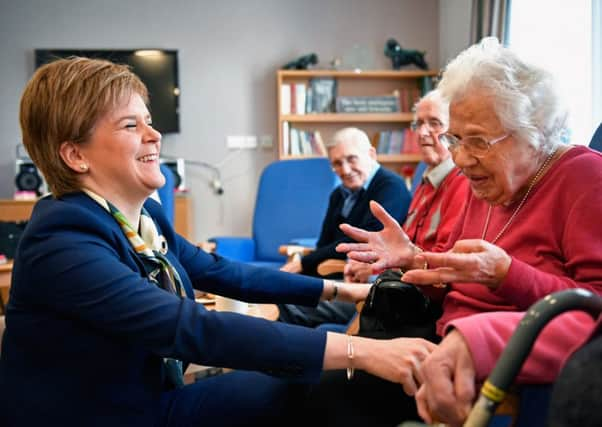Scottish trauma network plan hit by three-year delay


The Scottish Government said in 2014 that four major trauma centres in Aberdeen, Dundee, Edinburgh and Glasgow would be operational from 2016.
First Minister Nicola Sturgeon admitted on Wednesday that the “scale and complexity” of the changes meant full implementation would “take at least three years”.
Advertisement
Hide AdAdvertisement
Hide AdShe has announced an extra £5 million in 2017 to speed up the development of the network, which it is estimated will benefit about 6,000 seriously-injured patients each year.
Speaking at Ninewells Hospital in Dundee, Ms Sturgeon said: “The Scottish trauma network will connect and co-ordinate clinical teams across the country - giving patients, particularly those with major trauma, access to better care and rehabilitation support, and ensure they get taken to the right place as quickly as possible.
“One of our other key areas of focus is pre-hospital care, ensuring our emergency services can get to any trauma patient quickly and have more advanced skills, training and support to better-help patients at the scene and on their way to the most appropriate hospital.
“It is estimated that this approach could save up to 40 more lives a year and it is a model of care which is very much in line with the aims and ambitions of our delivery plan for health and social care - published at the end of 2016.
“We need to recognise that it is extremely important that we get the model right.
“Given the scale and complexity of the changes required to deliver the network, we should need to recognise it will take at least three years to fully implement it.
“We are allocating an extra £5 million in 2017-18 to begin to accelerate these improvements and we will be putting further significant investment in as we continue to build and fully establish the network over the next few years.”
Scotland’s chief medical officer Catherine Calderwood said: “Each year in Scotland, around 5,000 people are seriously injured, with around 1,000 cases being defined as ‘major trauma’.
Advertisement
Hide AdAdvertisement
Hide Ad“For each trauma fatality, there are two survivors with serious or permanent disability that will have significant impact on quality of life.
“These severely-injured patients require highly-specialised care, extended hospital stays and extensive rehabilitation.
“Today marks an important day in changing trauma care in Scotland for the better.”